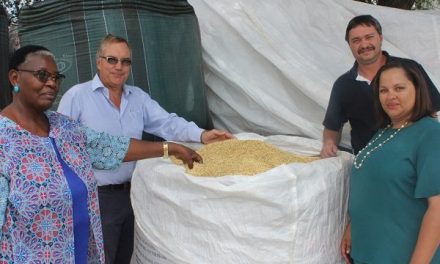
Four years left till Cotonou agreement lapses
Against the background of several raging international crises, except for climate change, mostly outside Africa, the start of 2016 is a stark reminder that African economies will only enjoy four more years of European market access under the ACP Cotonou Partnership agreement.
The raging challenges are interconnected and need to be tackled together. What must be defined are the root causes of these crises and collective action is required at the global level.
“The temptation may be to look for immediate solutions – but there are no quick or easy answers. A more systematic, careful and comprehensive approach is needed.” explained Dr. James Mackie, a senior advisor at the European Centre for Development Policy Management (ECDPM).
The centre has just published a new research paper – “Galvanising action for the Global Goals” that looks at the big challenges and opportunities facing Europe and Africa in 2016, following the global agreements reached last year on Sustainable Development Goals and climate change.
Four major conferences in 2015 set out a package of global agreements on trade, development financing, climate change and the universal Sustainable Development Goals (SDGs).
“To exploit the full potential of these vital processes, strong political backing will be required. These four global agreements have set out the beginning, not the end, of a long and challenging road,” said Mackie; “They provide a strong foundation for collective action upon which both Africa and Europe, along with others can build. 2016 confronts us with the task of turning these grand words into deeds.”
Africa has already started integrating the UN Sustainable Development Goals into ‘Agenda 2063’ – the African Union’s ambitious 50 year plan for African continental development. It will also need to strengthen the links between many major African initiatives like: the AU African Peace and Security Architecture, the Comprehensive African Agricultural Development Programme (CAADP), he New Deal for Fragile States and the AU African Governance Architecture.
“In 2016, Africa and Europe will need to gear up to put their global 2030 commitments into practice. Solid monitoring frameworks at the national and regional levels will be needed to meet these ambitious goals,” Mackie added.
Talks on the African Tripartite Free Trade Area (TFTA) and a potential Continental Free Trade Area (CFTA) are examples of opportunities that need to be seized upon. These could advance the flow trade and industry in Africa, against the backdrop of economic slowdown and declining flows of international aid.
A new College of Commissioners will take the reigns at the African Union Commission (AU) in 2016 and this could be an opportunity to further strengthen African cooperation with its many partners – particularly in Europe.
The end of the Cotonou Partnership Agreement in 2020 means that the EU and its partners in Africa, the Caribbean and the Pacific (ACP) countries have to consider what comes next. Though still four years away, rethinking one of Europe’s most long-standing global partnerships needs time and evidence for a well informed debate.
Many African countries, as members of the ACP, must explore options for a new partnership that is politically feasible and delivers better outcomes for their states and citizens.













































